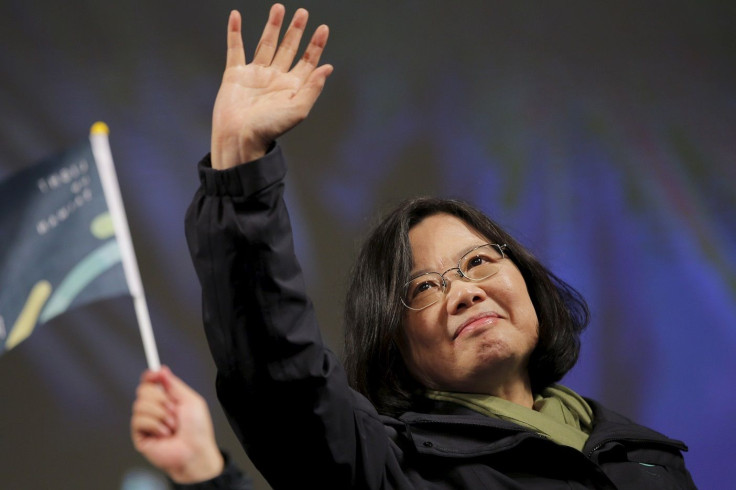Taiwan elects first female president; China threatens after Tsai Ing-wen’s win

Taiwan elected its first female president on Saturday. Democratic Progressive Party (DPP) leader Tsai Ing-wen won in a landslide victory that promised a “new era” in the country following of eight years of administration under the pro-China Kuomintang (KMT) party.
She succeeds Ma Ying-jeou, who will step down in May after serving two four-year terms. DPP’s Chen Chien-jen will assume position as vice president also in May.
The newly-elected president beat KMT’s Eric Chu, who admitted defeat after his rival gained a big margin ahead of him. He took only 31 percent of votes against Tsai’s 56 percent. He also announced his resignation as KMT leader, but was later urged to stay on. DPP won 68 of the 113 seats in the national legislature, while KMT won 36. Smaller parties took the remaining nine seats.
Tsai maintained her party’s stance on Taiwan’s democracy in her victory speech. She asked China to respect the country’s democracy as she vowed to lead a “new era” in Taiwan.
This does not please China, which sees Taiwan as its province. Taiwan Affairs Office, the Chinese Cabinet for handling Taiwan affairs, opposed the island’s independence. It reiterated Beijing’s “one China principle,” saying it is willing to work with the political party if it agrees that Taiwan belongs to China, Al Jazeera reported.
According to experts, China is taking a “wait-and-see” approach before it takes Taiwan by force. It is likely to put economic pressure on Taiwan. Voters were apparently concerned that the country has become too economically dependent on China during Ma’s reign. Tsai’s win is considered the people’s message to China, that while they wanted to maintain good relations with the other country, they also wanted their independence.
Taiwan, which had been a Japanese colony from 1895 to 1945, split from China in 1949.






